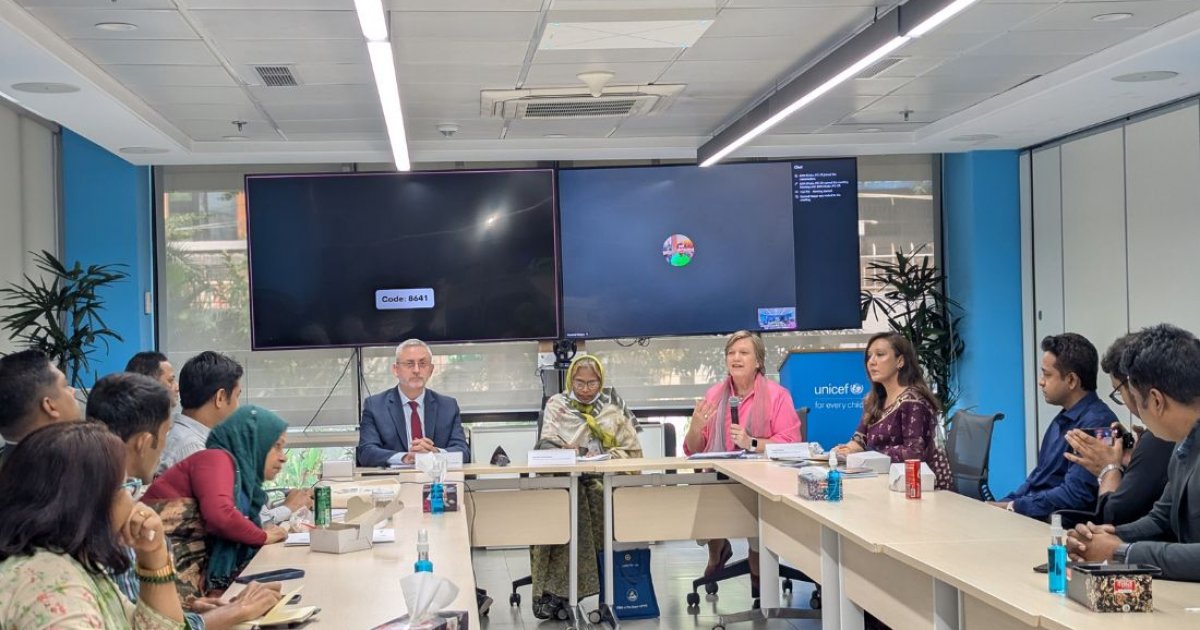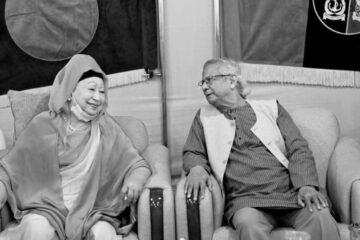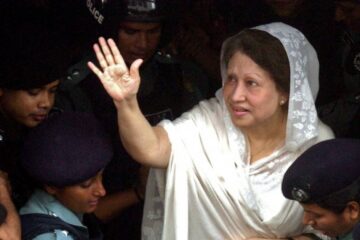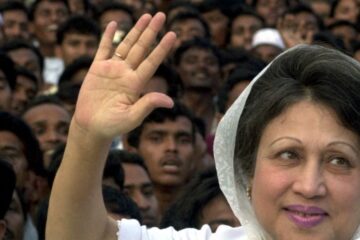The European Union and Unicef, in partnership with the Government of Bangladesh, have marked major milestones in a four-year initiative that has strengthened child protection systems and empowered adolescents across the country.
At a media briefing and evidence-sharing session held Wednesday at Unicef House in Dhaka, officials highlighted the impact of the joint program “Fostering Rights and Empowerment of the Most Marginalized Adolescents and Children with Disabilities” (2021–2025).
The event was attended by EU Ambassador Michael Miller, Unicef Representative Rana Flowers, and Mamtaz Ahmed NDC, Secretary of the Ministry of Women and Children Affairs.
Since its inception, the program has institutionalized 2,091 Child Protection Community Hubs in all 64 districts, reaching more than 16 million children and adolescents and 6.3 million caregivers through awareness campaigns, services, and training.
The Child Helpline 1098 handled 879,000 calls and helped rescue or refer 64,000 children, while annual service contacts exceeded 22 million.
Significant progress has also been recorded in key social indicators: birth registration for children under five has climbed from 47% to 70%, child marriage has fallen by 15 percentage points, violent discipline has dropped by 25 points, and public trust in social workers has jumped from 5% to 65%.
Government co-financing for child protection rose from 4% to 30%, laying the groundwork for long-term sustainability.
The EU–Unicef Costing Study (2023) found that maintaining a national child protection system costs less than 0.01% of GDP but prevents annual losses equivalent to 2% of GDP—returning up to $20 for every dollar invested.
Digital case management and expanded use of the 1098 Helpline have boosted efficiency by 10–15%, while family-based care is projected to save $50–70 million annually.
Ambassador Miller praised Bangladesh’s leadership, saying: “We are witnessing measurable, life-changing results. This program has built a sustainable, government-led system that protects children, empowers adolescents, and upholds human dignity.”
Unicef’s Rana Flowers underscored the economic and moral value of prevention.
“Every taka invested in protecting children saves many more in future costs. Safeguarding children is not only the right thing to do—it’s smart economics,” she said, adding that more than 12,000 early marriages had been prevented under the program.
MoWCA Secretary Mamtaz Ahmed NDC emphasised that “when girls are educated, skilled, and confident, entire communities progress,” calling for stronger community engagement and coordination among ministries to end child marriage.
All speakers agreed that sustaining progress requires increased investment in education, better birth registration systems, and stronger family-focused social support.
As Rana Flowers concluded: “No country can prosper if its children are left unprotected. Together, Bangladesh, the EU, and Unicef are building a safer, more inclusive future for every child.”



